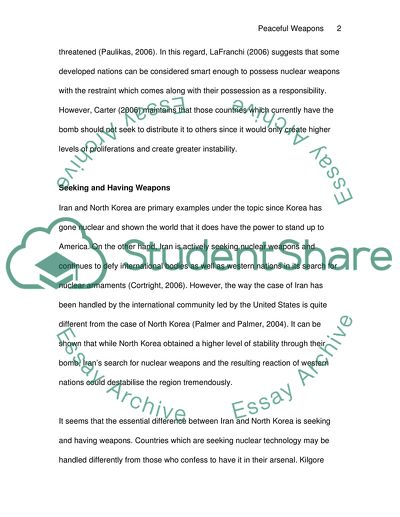Cite this document
(How Nuclear Weapons Help to Maintain Global Peace Case Study, n.d.)
How Nuclear Weapons Help to Maintain Global Peace Case Study. Retrieved from https://studentshare.org/military/1542967-the-spread-of-nuclear-weapons-is-more-better-with-reference-to-the-post-cold-war-world-critically-discuss-the-argument-that-nuclear-weapons-bring-stability
How Nuclear Weapons Help to Maintain Global Peace Case Study. Retrieved from https://studentshare.org/military/1542967-the-spread-of-nuclear-weapons-is-more-better-with-reference-to-the-post-cold-war-world-critically-discuss-the-argument-that-nuclear-weapons-bring-stability
(How Nuclear Weapons Help to Maintain Global Peace Case Study)
How Nuclear Weapons Help to Maintain Global Peace Case Study. https://studentshare.org/military/1542967-the-spread-of-nuclear-weapons-is-more-better-with-reference-to-the-post-cold-war-world-critically-discuss-the-argument-that-nuclear-weapons-bring-stability.
How Nuclear Weapons Help to Maintain Global Peace Case Study. https://studentshare.org/military/1542967-the-spread-of-nuclear-weapons-is-more-better-with-reference-to-the-post-cold-war-world-critically-discuss-the-argument-that-nuclear-weapons-bring-stability.
“How Nuclear Weapons Help to Maintain Global Peace Case Study”, n.d. https://studentshare.org/military/1542967-the-spread-of-nuclear-weapons-is-more-better-with-reference-to-the-post-cold-war-world-critically-discuss-the-argument-that-nuclear-weapons-bring-stability.


